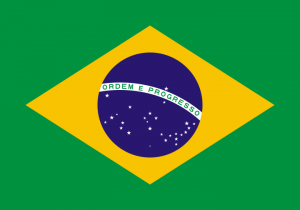 The Office of the United States Trade Representative (USTR) has just released it’s annual “Special 301 Report”. The report has been instrument for political pressure from USA regarding their ideal enforcement measures for protection of intellectual property rights (IPR). The Brazilian government does not legitimize either the report or the processes it tries to push forward, once it is done outside the official international fora for debating IPRs: WIPO (World Intellectual Property Organization) or WTO (World Trade Organization).
The Office of the United States Trade Representative (USTR) has just released it’s annual “Special 301 Report”. The report has been instrument for political pressure from USA regarding their ideal enforcement measures for protection of intellectual property rights (IPR). The Brazilian government does not legitimize either the report or the processes it tries to push forward, once it is done outside the official international fora for debating IPRs: WIPO (World Intellectual Property Organization) or WTO (World Trade Organization).
Unfortunately, some pressures have been effective, copyright industry representatives tend to use it’s arguments to entails unsuccessful piracy campaigns instead of rebuilding business models according to the possibilities brought by new technologies and thinking about solving market failures on the actual context. It has also been mentioned as reference by some Brazilian politicians who are unconscious about Foreign Relations political guidelines to disconsider it as appropriate and fair foreign policy instrument and to fight for a International Intellectual Property Regime that takes into account exceptions and limitations to IP right concerning different levels of development and the need for access to knowledge. Nonetheless, even transpassing questions of sovereignty, USTR keeps mentioning the country. The latest one bring the mentions bellow:
“Brazil remains on the Watch List. The United States is encouraged by recent improvements that Brazil made with respect to IPR protection and enforcement. Of note was a recent opinion by the Federal Attorney General that the Brazilian sanitary regulatory agency, ANVISA, does not have authority to review patentability requirements when analyzing pharmaceutical patent applications. Instead, the National Industrial Property Institute (INPI) is the only administrative agency with authority to decide questions of patentability with respect to patent applications. Enforcement actions have increased, under the coordination of the National Council to Combat Piracy (CNCP), and these increased actions included several major operations in the beginning of 2011. The United States encourages Brazil to continue this work in 2011. In addition, Brazil took steps to address a backlog of pending patent applications. However, piracy and counterfeiting persist at significant levels in Brazil, including book piracy and a reported growth in piracy over the internet. While enforcement efforts improved, including a larger number of raids and seizures, stronger enforcement at the border and deterrent level sentences are still needed. The United States urges Brazil to ensure that any amendments to its copyright law provide strong protections and establish means to enable efective enforcement against IPR violations that are commited on the Internet. The United States also encourages Brazil to provide an effective system for protecting against unfair commercial use, as well as unauthorized disclosure, of undisclosed test and other data generated to obtain marketing approval for pharmaceutical products. The United States looks forward to working with Brazil on these and other matters, including under the new United States-Brazil Agreement on Trade and Economic Cooperation.”
The full report is available here. Questioning such overview of Brazilian policy, Instituto Overmundo, in partnership with GTPI, has submitted criticisms to the USTR, under the Special 301 submissions. The read it, please, click here. Knowledge Ecology International has also published a post, here, evaluating the report in terms of access to medicines.




